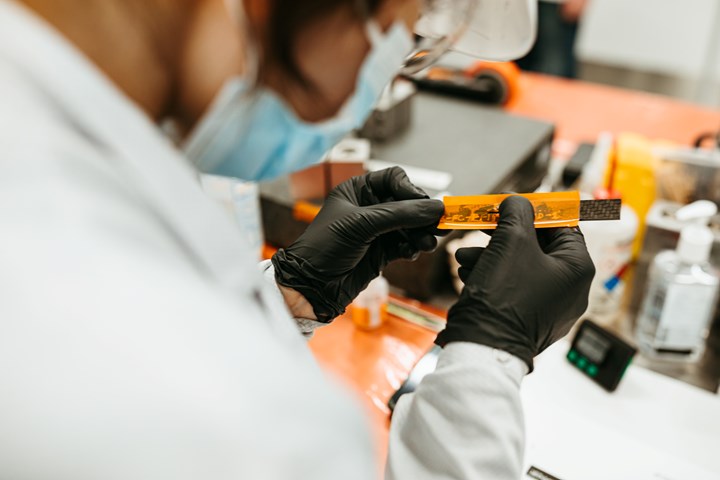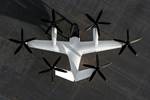Joby begins first conformity test, enters next phase of certification process
First series of conformity tests were completed at Toray Advanced Composites’ U.S. facility, with thousands more to be performed to achieve type certification of the composite eVTOL.

Photo Credit: Joby Aviation
Joby Aviation Inc. (Santa Cruz, Calif., U.S.) has begun Federal Aviation Administration (FAA) conformity testing, a key milestone on the path to achieving type certification (TC) for its electric vertical takeoff and landing (eVTOL) aircraft as it enters the “implementation phase” for the first time.
Joby’s first series of conformity tests, observed and documented by an on-site FAA Designated Engineering Representative (DER), were completed the week of Feb. 7, 2022 at Toray Advanced Composites’ Morgan Hill, Calif., U.S. facility.
The testing, developed by Joby engineers, is designed to confirm the material strength of composite coupons that are representative of the aerostructure of Joby’s aircraft. The resulting compliance data will form the foundation for future testing of structural components of the aircraft as Joby progresses through the TC process.
Each system and structure of the Joby aircraft will enter the implementation phase, the company notes, and begin conformity testing following completion and approval of requirements definition and compliance planning. During this phase, Joby will complete thousands of inspections and tests to demonstrate the airworthiness and safety of its aircraft before receiving a TC from the FAA.
“After years of development and company testing, we’re excited to formally begin the process of conformity testing,” says JoeBen Bevirt, founder and CEO of Joby. “We began engaging with the FAA in 2015 to lay the groundwork for certification of our aircraft, and today we move closer to bringing fast, clean and convenient aerial ridesharing to the world.”
In November 2021, Joby completed its first FAA part conformity inspection as expected, confirming that the batch of test coupons used in the “for credit” testing conformed to the attributes and specifications of their associated design data and as intended for the aircraft’s TC.
The coupons, constructed using a toughened epoxy and state-of-the-art carbon fiber, result in a material that is said to be lighter and stronger than existing aerospace-grade composites, making it ideal for a high-performance eVTOL aircraft.
“Entering this stage of testing demonstrates that we’re capable of manufacturing composite parts in accordance with their design, our quality system is capable of producing conforming composite parts for the aircraft and that we have the requisite traceability and design verification processes in place to progress toward our type and production certifications,” says Lina Spross, quality and supply chain lead at Joby.
In 2020, Joby became what is says is the first and only eVTOL company to sign a G-1 (stage 4) certification basis with the FAA, having received an initial (stage 2) signed G-1 from the FAA in 2019. In parallel with this work, the company continues to make progress with the FAA on defining the means of compliance that will apply to its aircraft as it progresses with certification efforts.
Related Content
-
The basics of composite drawing interpretation
Knowing the fundamentals for reading drawings — including master ply tables, ply definition diagrams and more — lays a foundation for proper composite design evaluation.
-
Materials & Processes: Tooling for composites
Composite parts are formed in molds, also known as tools. Tools can be made from virtually any material. The material type, shape and complexity depend upon the part and length of production run. Here's a short summary of the issues involved in electing and making tools.
-
3D-printed CFRP tools for serial production of composite landing flaps
GKN Aerospace Munich and CEAD develop printed tooling with short and continuous fiber that reduces cost and increases sustainability for composites production.















.jpg;maxWidth=300;quality=90)
